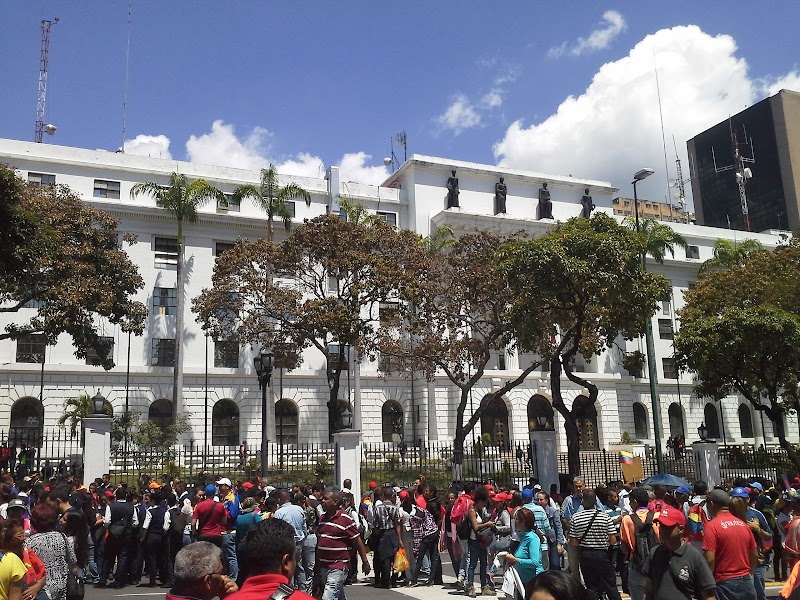José Antonio Páez, a fearless military leader and respected political figure, holds the distinction of being the first President of Venezuela. Born on June 13, 1790, in Araure, Venezuela, Páez came from humble beginnings, with his parents being of mixed Spanish and indigenous descent. He grew up in the midst of Venezuela’s struggle for independence from Spanish rule, which ignited his passion for freedom and justice.
With limited formal education, Páez rose through the ranks of the independence movement solely based on his exceptional leadership skills and military prowess. He played a pivotal role in several decisive battles, including the battles of Araure and Carabobo, which ultimately led to Venezuela’s independence in 1821. Páez’s charisma and strategic decision-making earned him tremendous respect among his fellow soldiers and the Venezuelan people.
- Background and Early Life:
- Born José Antonio Páez on June 13, 1790, in Araure, Portuguesa State, Venezuela.
- Son of Juan Victorio Páez, a farmer of Spanish descent, and María Violante Herrera, an indigenous woman.
- Received limited formal education, primarily through military service.
- Key Achievements:
- Played a crucial role in the Venezuelan War of Independence (1810-1823).
- Commanded the Venezuelan cavalry at the Battle of Carabobo in 1821, a decisive victory for the independence movement.
- Elected the first President of Venezuela in 1830, following the dissolution of Gran Colombia.
- During his presidency, he established the National Guard and initiated land reforms.
- Legacy and Impact:
- Known as “El León de Payara” (The Lion of Payara) for his bravery and military leadership.
- Instrumental in maintaining Venezuela’s independence and stability during its early years as a republic.
- His military exploits and political achievements continue to be celebrated in Venezuelan history.
As Venezuela’s first President, Páez faced the daunting task of leading a newly independent nation through its formative years. He established the National Guard, implemented land reforms, and strived to promote economic stability. Despite internal political challenges and external threats, Páez’s resolute leadership and commitment to Venezuela’s progress left an indelible mark on the nation’s history.
José Antonio Páez’s legacy extends beyond his political achievements. He is revered as a national hero, embodying the values of courage, determination, and unwavering commitment to freedom. His name and image grace Venezuelan currency, monuments, and public spaces, serving as a constant reminder of his enduring impact on the nation’s identity and heritage.

Emblem of Venezuela
To enrich your insights into presidential figures worldwide, also explore some prominent first presidents from other countries, such as Vanuatu, Uzbekistan and Uruguay. Delving into the leadership journeys of these figures can offer valuable perspectives on their historical significance and pivotal roles in shaping global politics.
The official residence and symbol of the Venezuela President
10 Iconic Presidents Who Shaped Venezuela’s History

Venezuela has had a rich political history with many notable presidents who have left their mark on the country. Here are 10 of the most popular presidents from Venezuela:
- Hugo Chávez (1999-2013) – Chávez is one of the most well-known and controversial presidents of Venezuela. He implemented a socialist agenda and was known for his charismatic leadership style.
- Simón Bolívar (1813-1830) – Bolívar is a revered figure in Venezuela and played a crucial role in the country’s fight for independence from Spain. He served as the first president of Gran Colombia, which encompassed present-day Venezuela, Colombia, Ecuador, Panama, and parts of Peru and Brazil.
- Rómulo Betancourt (1959-1964) – Betancourt was a key figure in Venezuelan democracy. He founded the Democratic Action party and implemented important social reforms, including land redistribution and nationalization of the oil industry.
- Rafael Caldera (1969-1974, 1994-1999) – Caldera is the only president of Venezuela to serve non-consecutive terms. He is remembered for his efforts to foster national reconciliation and for granting amnesty to political prisoners.
- Luis Herrera Campins (1979-1984) – Campins was the first president of Venezuela to have been democratically elected after the fall of the dictatorship in 1958. He focused on economic diversification and social welfare programs.
- Carlos Andrés Pérez (1974-1979, 1989-1993) – Pérez was a transformative figure in Venezuelan politics. He implemented economic reforms and initiated social programs aimed at reducing poverty.
- Raúl Leoni (1964-1969) – Leoni was known for his emphasis on social reforms and his commitment to democracy. He implemented policies to address poverty and promote education.
- Jaime Lusinchi (1984-1989) – Lusinchi focused on economic stabilization and social programs during his presidency. However, his administration was marred by corruption scandals.
- Isaías Medina Angarita (1941-1945) – Angarita served as president during World War II and implemented policies that promoted industrial development and improved labor rights.
- Ramón José Velásquez (1993-1994) – Velásquez served as interim president after the impeachment of President Carlos Andrés Pérez. He focused on economic stability and political reconciliation.

